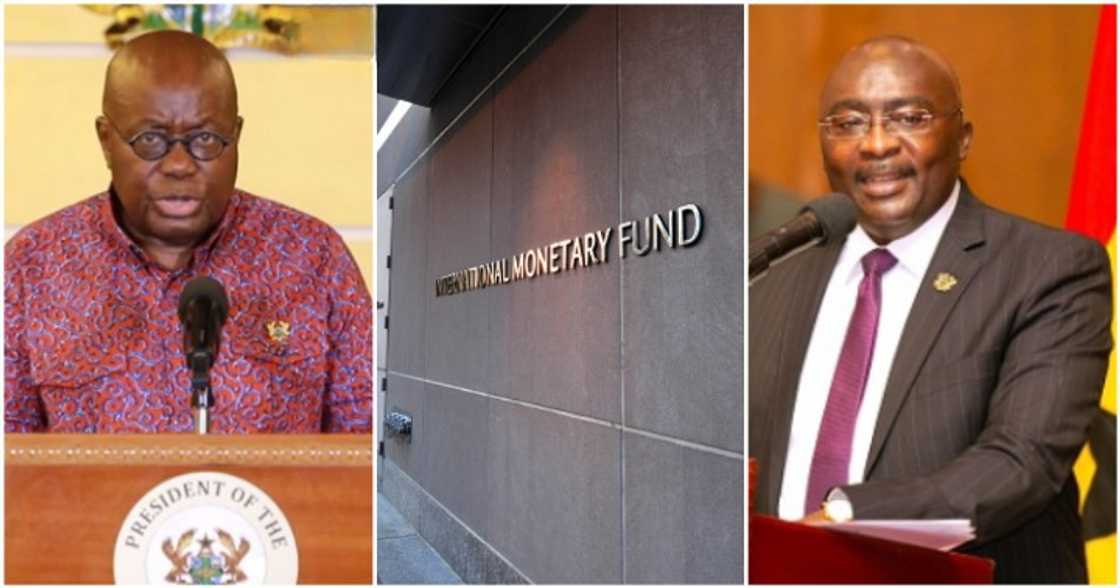IMF Bailout: IMANI Rates 2007 Financial Crisis As More Severe Than Covid-Ukraine Crisis
- IMANI has said the oft-cited Covid-19 pandemic and the Ukraine crisis as causes of Ghana's economic woes is milder than the 2007 to 2009 Global Financial Crisis
- The think tank said in a paper on Ghana's return to the IMF that Ghana suffers from a chronic dependence on the Fund
- IMANI also said many of the economic challenges that take the country to the IMF are largely preventable domestic problems
New feature: Check out news exactly for YOU ➡️ find “Recommended for you” block and enjoy!
Think tank, IMANI Centre for Policy and Education, has said the government might be exaggerating the Covid-19 and the Ukraine crisis as reasons for going to the IMF for a bail out.

Source: Getty Images
In a policy brief on the government’s U-turn to seek balance of payment support from the international lender, IMANI said the financial crisis of 2007 to 2009 took a bigger toll on the Ghanaian economy. Ghana sought IMF support in the form of an Extended Credit Facility in 2009 over the financial crisis.
“It is important not to create the impression that the COVID-Ukraine crisis of today is unprecedented. It is afar milder crisis than 2007 to 2009 one.
“And every time, since 2000, that Ghana’s situation has been desperate enough for it to turn to the IMF, a global crisis of one sort or another has been a contributory factor. But the primary issues are always domestic,” IMANI said.
PAY ATTENTION: Click “See First” under the “Following” tab to see YEN.com.gh News on your News Feed!
Global Financial Crisis between 2007 and 2009 was a severe worldwide economic crisis that occurred in the early 21st century. Many analysts have described it as the most serious financial crisis since the Great Depression.
The Nana Akufo-Addo administration has blamed the aftershocks of the Covid-19 pandemic and Russia’s invasion of Ukraine for macroeconomic challenges in Ghana.
IMANI said in the brief on Ghana’s return to the IMF that although Ghana has run to the IMF due to global challenges, the root cause can be traced to chronic dependence on the Fund.

Read also
Free SHS & others may not be scrapped over IMF Bail-Out but modifications are likely – Economists
Claims that half the world's countries have gone for IMF bail out are not true
YEN.com.gh reported previously that renowned social innovator Bright Simons has dismissed claims by Ghana government spokespersons that half the world's countries have gone for an IMF bail out.
The honorary vice president of think tank IMANI Centre for Policy and Education said there are many programmes other than bail out that countries engage the IMF for.
"The IMF has many programs. Those that can be classed as 'bailouts' are not the ones like the RFI, RCF & CCRT that many countries, incl Ghana, went for in 2020.
""Only about 25% of countries with an IMF program are getting the treatment Ghana needs (ECF/EFF) [Extended Fund Facility/ Extended Credit Facility] & have needed 4 times since 2000," he tweeted on Tuesday, July 5, 2022.
New feature: Check out news exactly for YOU ➡️ find "Recommended for you" block and enjoy!
Source: YEN.com.gh


